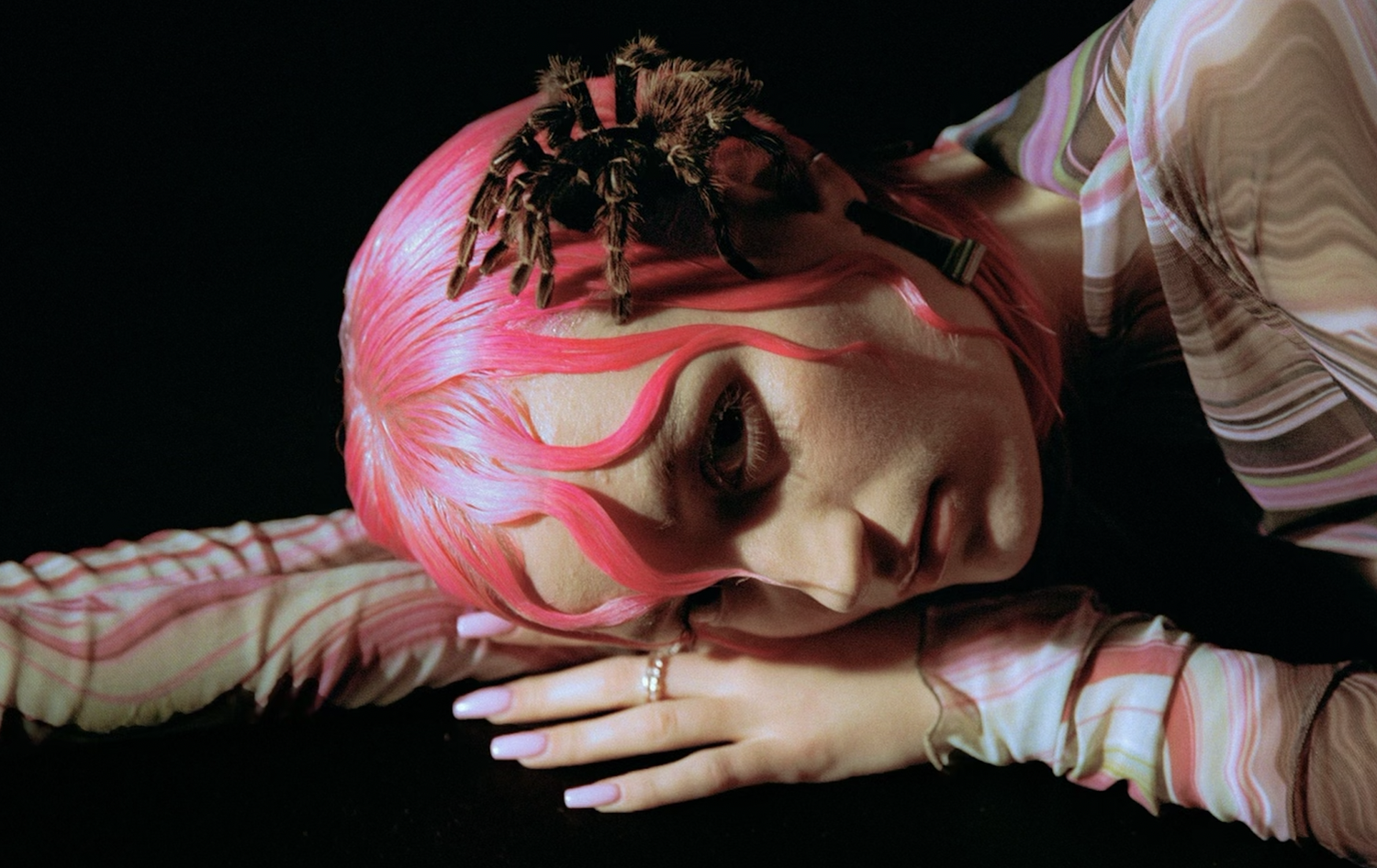
News
Cambridge Residents Slam Council Proposal to Delay Bike Lane Construction

News
‘Gender-Affirming Slay Fest’: Harvard College QSA Hosts Annual Queer Prom

News
‘Not Being Nerds’: Harvard Students Dance to Tinashe at Yardfest

News
Wrongful Death Trial Against CAMHS Employee Over 2015 Student Suicide To Begin Tuesday

News
Cornel West, Harvard Affiliates Call for University to Divest from ‘Israeli Apartheid’ at Rally
Artist Profile: GRAE Tests New Sound with ‘Room in the Desert’

Pink-haired and with a Prince meme taped up on the wall behind her, Toronto singer-songwriter GRAE joined the Zoom call ready to recount her life spent as a musician.
“When I was about ten years old, my dad got me my first guitar from a pawn shop,” she said about her beginnings in an interview with The Harvard Crimson. “It was like this little purple guitar, and I just started writing songs and playing.”
It was only when her mother passed away at age 14, however, that music took on a larger role in her life as a necessary way to express herself.
“I was a very angry teenager and the only thing that made me happy was music, and my dad recognized that,” she said. “So he did anything he could to get me the music lessons, get me into recording studios, to help me. I’m very grateful for that.”
Although she faced pressure in high school to go to university or choose a more traditional career, GRAE decided to pursue music full time, with the support of her father. Since committing herself to a life in music, GRAE has released 2 EPs, “New Girl” and “Permanent Maniac,” a number of singles, and her first studio album “Whiplash” is to be released later this year.
Her latest Jan. 19 single, “Room in the Desert,” is a true experiment in sonic creativity, channeling both Cocteau Twins and Tame Impala.
“Inspiration for the song stemmed from absolutely no inspiration at all. I went into the session, and I had nothing to write about,” GRAE said before quipping, “I was in a happy relationship, and that doesn’t help for writing.”
Having written most of her previous music about personal experiences, GRAE decided to try something new. The initial spark arrived when listening to “Cherry-Coloured Funk” by Cocteau Twins.
“I remember listening to the lyrics one day and being like, ‘What does this mean? It sounds like just a bunch of random words that are put together,’” she said. “I kind of was just like, ‘maybe it would be fun to do something like that, where we just write from nothing and just put a bunch of words together.’”
That absence of formal or stylistic restrictions created an atmosphere of pure creative autonomy for the artist. “It allowed me, my producer, and my writing partner this opportunity to have so much creative freedom to allow ourselves to do something completely outside of the box and not related to me,” she said. “It didn’t have to stem from me.”
Still, she noted that some lines in the song are indeed personal to her, such as the chorus’ cuttingly vulnerable refrain, “Is it bad I cry most days?”
“That’s true; I do cry most days,” she said, her pastel yellow backdrop shining in bright contrast to her confession. “I’m very emotional.”
The production of “Room in the Desert” was coordinated by GRAE’s producer Connor Seidel; the pair share a manager.
“I’ll come in and I’ll be like ‘I’d like to do something that’s older Tame Impala-inspired with like The Cure-inspired, but let’s bring GRAE into it and make sure it sounds along the lines of ‘Permanent Maniac’ to make sure things tie together,’ and Connor’s just crazy he’ll be like: ‘OK I got it’ and then fucking five minutes later he comes back and is like ‘here,’” she said.
Such rigorous collaboration with producers and songwriters has pushed GRAE to develop her musicality and, in her own words, “sing better.” “I feel like Connor really developed my new sound. Connor and Derek Hoffman — those are the only producers I work with — they developed my new sound for me, and I love both of them so much,” she said.
Moving forward, GRAE hopes her music will reach the widest audience possible. Having released “Permanent Maniac” during the COVID-19 pandemic, she hasn’t been able to tour yet, though she longingly looks forward to the opportunity.
In today’s socially distanced world, artists bear the burden of promoting themselves online via social media platforms, which can often be taxing on self-confidence and morale, according to GRAE.
“Social media is obviously this thing where you can constantly be putting out promotional things for yourself and your music, and sometimes something can blow up and it can be amazing and all of a sudden you have a record deal,” she said. “But for the artists who might not necessarily fit this content-driven world we’re living in, it can be very difficult for them.”
Above all, GRAE holds tight to the power of music she discovered at an early age. “I just think music plays such a big role in every part of our lives,” she said. “If you think of a certain moment or a certain person or a certain memory, a lot of the time there’s a song attached with that.”
Furthemore, she notes the impact she hopes her music will make moving forward.
“Even if it’s one person listening to my music and I make that one person feel better, that makes me feel like I’ve done something,” she said.
“Room in the Desert” is set to release on Jan. 19. GRAE’s first studio album “Whiplash” is scheduled for April 15.
—Staff writer A.J. Veneziano can be reached at aj.veneziano@thecrimson.com. Follow him on Twitter @aj_veneziano.
Want to keep up with breaking news? Subscribe to our email newsletter.
